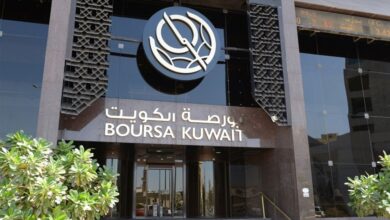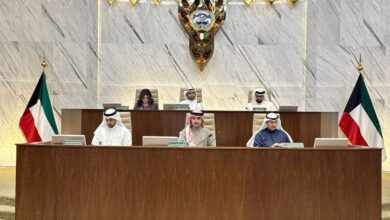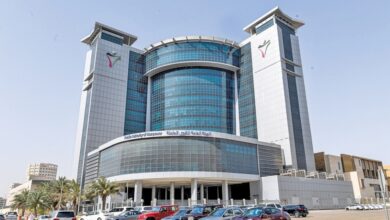‘Sovereignty is not for sale, freedom is not for bargain’… 35 years on, Kuwait still stands tall
“Kuwait stands firmly grounded in political and democratic stability. It honors its past while advancing confidently into the future. The wounds of invasion still linger in the Kuwaiti consciousness, but the message to the world is loud and clear: Sovereignty is not for sale, the homeland is not to be taken, and freedom is not to be bargained.”


By Sheikha Suhaila Al-Sabah
Managing Editor
Each year on August 2, Kuwait commemorates a day that remains deeply etched in the nation’s collective memory: the anniversary of the brutal Iraqi invasion in 1990.
Now marking its 35th year, the remembrance comes at a time when the region has witnessed profound changes—not least in the evolving and significantly improved relationship between Kuwait and Iraq, which, despite the deep scars, has progressed steadily toward reconciliation and cooperation.
The invasion was a shocking chapter in modern history—a treacherous dawn when the Iraqi forces stormed into Kuwaiti territory, trampling on sovereignty, human dignity, and every principle of international law.
But what began as an act of aggression quickly ignited a historic wave of resistance. The Kuwaiti people—both men and women—responded with unparalleled courage, from civil disobedience and underground resistance to the tireless efforts of the legitimate Kuwaiti leadership in exile, which galvanized global opinion and diplomatic momentum.
Those dark days witnessed unforgettable sacrifices. Hundreds of Kuwaiti citizens were martyred in defense of the homeland, including national icons like Martyr Faisal Al-Sanea, who chose death over submission, and Mubarak Al-Nowat, who gave his life defending constitutional legitimacy. Women-led protests defied bullets and repression, breaking the silence of occupation and planting the seeds of a new Kuwaiti history.
After seven months of occupation, Kuwait was liberated on 26 February 1991, at the hands of a historic international coalition led by the United States under UN Resolution 678, in what became known as Operation Desert Storm. This operation not only restored Kuwait’s freedom but also reshaped global military and political balances at the dawn of the post-Cold War era.

But the end of the occupation did not mark the end of the story. Iraq faced years of UN sanctions under Chapter VII due to the crimes of its former regime—sanctions that strained the Iraqi people and affected the entire region.
With the fall of Saddam Hussein’s regime in 2003, a new chapter began. Successive Iraqi governments have since sought to turn the page, building relationships based on mutual respect and good neighborliness.
This year’s commemoration is symbolically significant, reminding us not only of the tragedy of the invasion but also of the maturity of Kuwaiti-Iraqi relations. Bilateral ties have reached unprecedented levels of coordination, as reflected in the historic 2012 visit of the Iraqi Prime Minister to Kuwait and the participation of the late Amir of Kuwait in the Arab Summit in Baghdad the same year.
Today, Kuwait and Iraq stand as an example of what can be achieved through genuine political will. Officials on both sides affirm that the majority of outstanding issues have been resolved, and both countries are moving confidently toward a more stable regional partnership.
Yet this rapprochement has not come at the cost of Kuwait’s national memory. The government and citizens alike insist on preserving the memory of the invasion—not to dwell on pain, but to pass on the lessons of dignity and patriotism to future generations.
Efforts to document the period extend beyond politics. Civil society organizations, in particular the Association of Families of Martyrs, Prisoners, and Missing Persons, have played a vital role in cultivating a culture of remembrance. Through publications, films, calls to name streets after martyrs, and efforts to include their stories in the national curriculum, they ensure that the flame of memory remains alive.
Equally, the heroic role of Kuwaiti women during the invasion must never be forgotten. Women were ‘on the frontlines’, engaging in civil resistance and sacrificing their lives for sovereignty and legitimacy. Martyrs like Wafa Al-Amer and Asrar Al-Qabandi embody this spirit. Their stories have been documented in Arab encyclopedias, highlighting that heroism in Kuwait was not limited to any single group—it was a nationwide epic of resistance.
Though Kuwait paid a heavy price, what followed was a stronger, more united country with a solid constitutional foundation and a vigilant civil society. The October 1990 Jeddah Conference captured this spirit—where Kuwaitis reaffirmed their unwavering commitment to their legitimacy and constitution as non-negotiable principles.
Today, 35 years later, Kuwait stands firmly grounded in political and democratic stability. It honors its past while advancing confidently into the future. The wounds of invasion still linger in the Kuwaiti consciousness, but the message to the world is loud and clear: Sovereignty is not for sale, the homeland is not to be taken, and freedom is not to be bargained.
May God bless the souls of Kuwait’s martyrs and protect Kuwait and its people from all harm.
Follow The Times Kuwait on X, Instagram and Facebook for the latest insights










